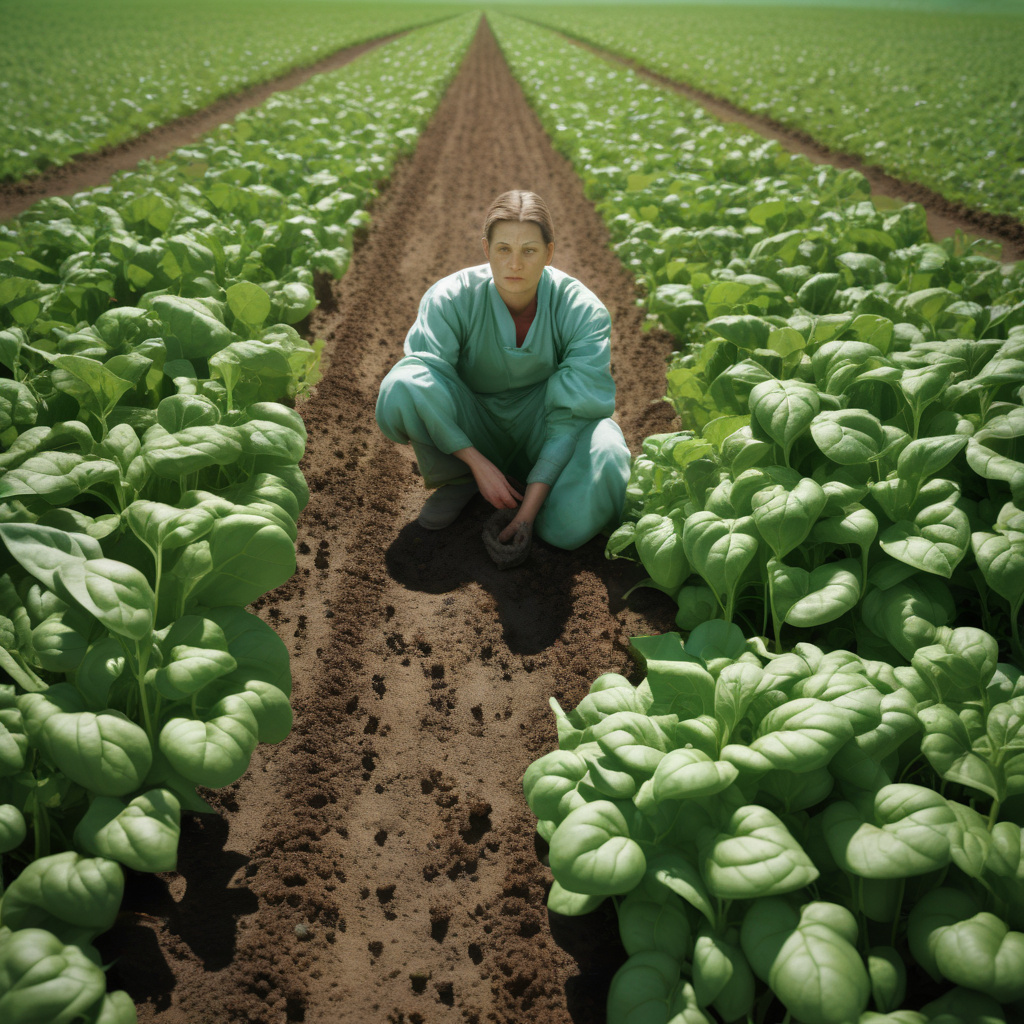Wild Spinach: The Unlikely Hero in Saving US Seed Crops from Deadly Soil Fungus
In Christopher Nolan’s Interstellar, Earth’s crops slowly die out one by one, triggering a desperate search for alternative food sources to save humanity from extinction. While this may seem like a work of fiction, the threat of crop devastation is a very real concern in today’s world. One of the major culprits behind this potential agricultural disaster is a deadly soil fungus that can wipe out entire seed crops. However, recent research has revealed a surprising solution in the form of wild spinach, offering a glimmer of hope in the face of this looming crisis.
The soil-borne fungus, known as Fusarium oxysporum, is a destructive pathogen that attacks a wide range of crops, including tomatoes, lettuce, and peppers. Once infected, these crops experience stunted growth, wilting, and ultimately death, leading to devastating losses for farmers and threatening food security on a global scale. Traditional methods of controlling this fungus, such as chemical pesticides, have proven to be ineffective and environmentally harmful, necessitating the search for alternative solutions.
Enter wild spinach, a humble and often overlooked plant that may hold the key to combating Fusarium oxysporum and protecting seed crops from complete annihilation. Researchers at the University of California, Riverside, have discovered that wild spinach produces compounds that inhibit the growth of this deadly fungus, offering a natural and sustainable way to manage the disease. By harnessing the power of these bioactive compounds, farmers may be able to safeguard their crops against Fusarium oxysporum and ensure a stable food supply for future generations.
What makes wild spinach such a potent ally in the fight against crop-threatening fungi? The answer lies in its unique genetic makeup and evolutionary history. Unlike domesticated crops that have been bred for specific traits over generations, wild spinach has developed natural defenses against various environmental stressors, including fungal pathogens. These inherent resistance mechanisms make wild spinach a valuable genetic resource for breeding programs aimed at enhancing the disease resistance of commercial crops.
Moreover, wild spinach’s ability to thrive in diverse habitats and climates makes it an ideal candidate for sustainable agriculture practices, particularly in the face of climate change and emerging plant diseases. By incorporating traits from wild spinach into mainstream crop varieties, researchers hope to bolster their resilience to fungal infections and other threats, reducing the reliance on chemical inputs and promoting ecological balance in agroecosystems.
The potential of wild spinach to prevent the total wipeout of US seed crops by Fusarium oxysporum highlights the importance of biodiversity conservation and genetic diversity in agriculture. As we confront the challenges of feeding a growing population in a changing world, we must look to nature for inspiration and solutions that can help us build a more resilient and sustainable food system. By embracing the power of wild spinach and other wild relatives of crops, we can safeguard our agricultural heritage and ensure food security for generations to come.
In the battle against crop-devastating fungi, wild spinach emerges as a silent but formidable warrior, offering hope where there was once despair. As we navigate the complexities of modern agriculture, let us not forget the invaluable resources that nature provides and the wisdom it imparts on the importance of diversity and adaptation. With wild spinach leading the way, we can cultivate a future where our seed crops are protected, our plates are full, and our planet thrives.
wild spinach, seed crops, soil fungus, agricultural innovation, food security












